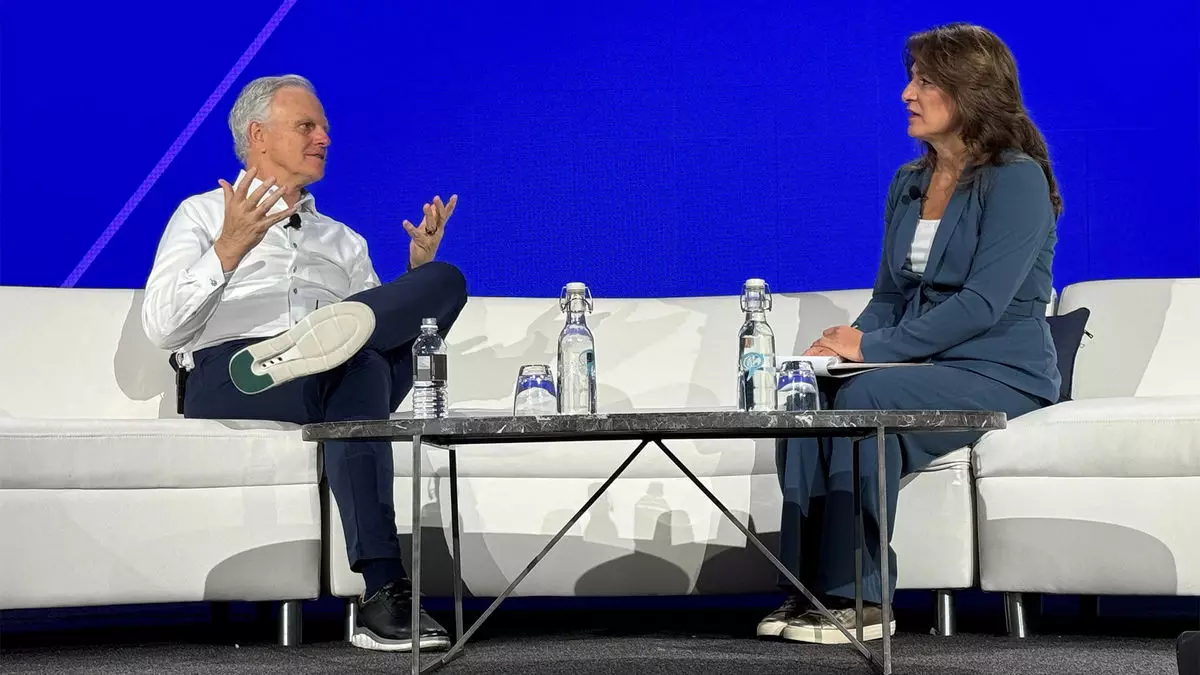In the rapidly evolving landscape of the aviation industry, David Neeleman, the CEO of Breeze Airways and a prominent figure in airline entrepreneurship, has carved out a name for himself by challenging conventional wisdom. Known for launching successful airlines such as JetBlue, Morris Air, WestJet, and Azul Brazilian Airlines, Neeleman has made headlines once more with his stark criticism of the aviation sector’s push toward Sustainable Aviation Fuel (SAF). His provocative statements, delivered at the Phocuswright Conference, paint a picture of an industry that may be heading toward self-sabotage under the guise of environmental responsibility.
In a thought-provoking critique, Neeleman asserts that the transition to SAF is economically unviable. He highlights perilous statistics from industry leader Willie Walsh, who claims that implementing SAF across the global airline sector could culminate in an astronomical cost increase of $187 billion. This stark warning resonates strongly when considering that the entire airline industry collectively sees profits of only $32 billion annually. For Neeleman, this disparity underscores a disastrous equation: if airlines adopt SAF, the very foundation of profitability could crumble, ultimately threatening jobs and livelihoods across the sector.
Moreover, Neeleman’s perspective extends beyond mere airline economics to touch upon broader implications for the fuel and agricultural sectors. He warns that a large-scale shift to SAF would cripple diesel fuel refineries, leading not only to fuel scarcity but also potential price surges for essential goods. The revelation that the aviation industry might consume resources that are critical for food production raises ethical questions about the prioritization of carbon reduction over food security. Neeleman’s assertion that a surge in demand for SAF could exacerbate global hunger is particularly provocative and challenges the sustainability narrative that often dominates discussions in this arena.
One of the striking elements of Neeleman’s speech is the suggestion that many other aviation executives are ensnared in a mentality of “group think.” He implies that fear of backlash from environmental advocates stifles honest dialogue about the practicalities and ramifications of SAF adoption. By boldly stating what many in the industry might only consider in hushed tones, he positions himself as a provocateur willing to take risks in his commentary. This self-styled truth-telling casts him in a controversial light, portraying him as both a whistleblower of sorts and an antagonist of the environmental movement.
David Neeleman’s commentary at the Phocuswright Conference resonates as a multifaceted critique of the prevailing SAF narrative in aviation. While acknowledging the undeniable grit of climate change, his economic rationale and emphasis on potentially dire outcomes pose crucial questions for industry stakeholders. As the airline sector grapples with its future and the pressing need for sustainable practices, formidable voices like Neeleman’s serve as both warning and challenge—urging the industry to rethink its sustainable strategies, not just for the sake of the environment, but also for the health of the global economy.


Leave a Reply